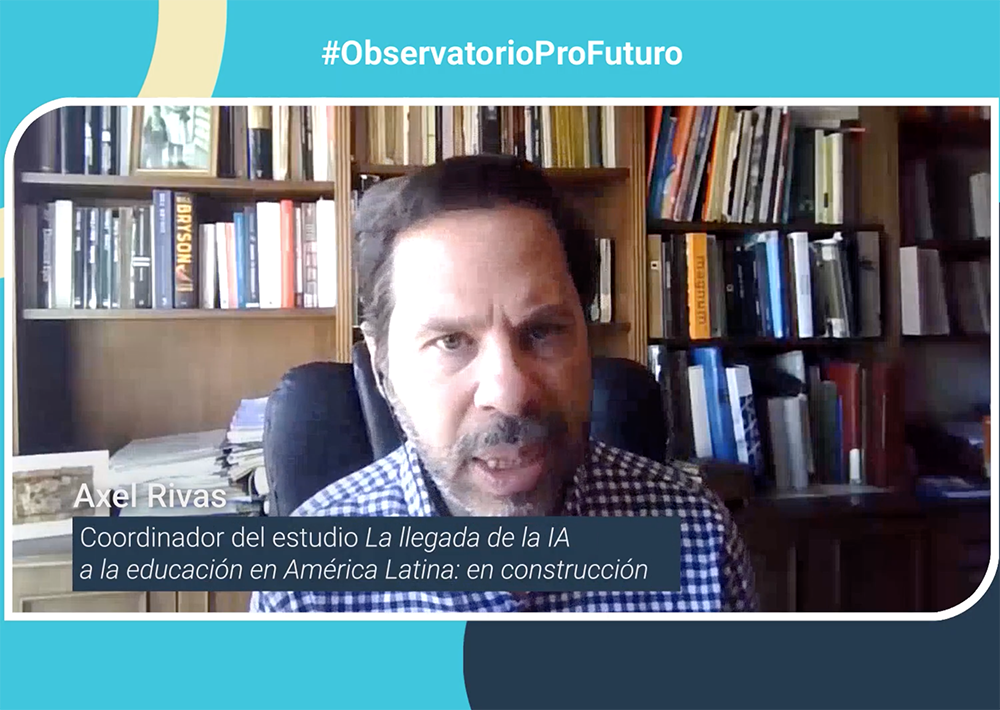How to promote social inclusion through digital education

In the new digital society, we must, at all costs, avoid a new form of social vulnerability, that of people who lack access to the new technologies or don’t have the skills required to function in 21st-century society. On Internet Day the ProFuturo Observatory dedicated a post to emphasising the capacity of digital education to generate more and better opportunities for vulnerable children and young people.
Digital education to change the future of Africa

In sub-Saharan Africa more than half of primary school children don’t attend school. On Africa Day the ProFuturo Observatory sought to highlight some initiatives that are being conducted in the region to contribute to improving the education of children through the new technologies. Digital libraries, mobile apps and solar-powered devices loaded with knowledge… this is how the transformation of education in Africa is taking shape.
Computational thinking or when thinking like a machine makes us more human
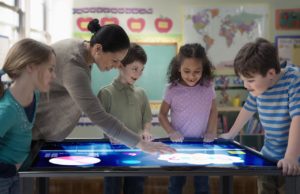
Throughout the year the Observatory has also paid close attention to innovative learning strategies that are being incorporated into the classroom. This is the case, for example, of computational thinking. The inclusion of computational thinking in educational environments has become increasingly important, given that, among other benefits, it contributes to the development of skills that will help children to cope in today’s and tomorrow’s society without difficulty. It’s also particularly useful for changing problematic realities in vulnerable contexts. In this article we explain how and why.
How to educate digital citizens
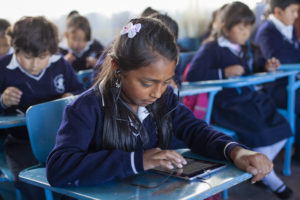 We continue with more “world days”. On World Parents’ Day we echoed one of their greatest concerns: how to educate digital citizens capable of making safe and responsible use of the new technologies.
We continue with more “world days”. On World Parents’ Day we echoed one of their greatest concerns: how to educate digital citizens capable of making safe and responsible use of the new technologies.
Digital education: a hopeful future for refugees

On World Refugee Day we wanted to devote a space to the 34.6 million children who, according to the UNHCR’s data, are forced to live outside their homes. If we’re able to capitalise on it, digital education can make a big difference to the future of these children, who live in often highly precarious conditions as refugees or displaced people. This post provides an overview of the state of education in these contexts and offers some lessons learnt from ProFuturo’s own experience and those of other organisations.
What’s the matter with maths?

Unlike computational thinking, mathematics has been taught at schools for centuries. However, the data tell us that something is wrong. Maths should be thrilling, but it’s tedious for most of the world’s students (or even dreaded by them). It should help us to understand the world, but we bore our children by making them do calculations ad nauseam. The world has changed, but the way maths is taught hasn’t. What can we do to remedy this situation? The ProFuturo Observatory wanted to devote a set of posts to the current state of the teaching of mathematical thinking and the new ways of learning and teaching this age-old subject.
Helping vulnerable children to dream big
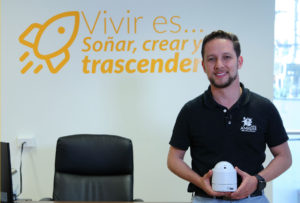
He could have ended up on the streets of Medellín in the ranks of one of the gangs, but instead he wound up creating a company that develops cutting-edge technology to help teachers to change the lives of children like him. Juan Manuel Lopera’s “inventions” generate magic and excitement, the sparks that ignite children’s desire to learn and dream of great things. We spoke to him at the ProFuturo Observatory. And this is what he told us.
Dina Buchbinder: Playing to change the world
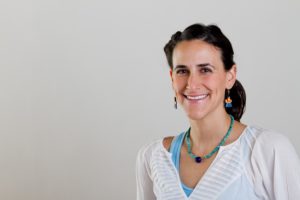
What’s a global citizen? How do we teach him or her? Are we preparing our children to be the citizens that today’s society needs? What challenges do teachers face when it comes to educating the new citizens of tomorrow? What skills and competencies should they learn? Dina Buchbinder, the founder of the Education for Sharing organisation, with which ProFuturo has launched the Club 2030 programme, spoke to us about the above. A woman who firmly believes that it’s possible to change the world through education and has moved on from words to deeds.
Artificial intelligence, education and equity: are we on the right track?
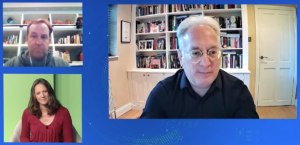
How has the use of artificial intelligence applied to education progressed? How can we make proper use of its benefits and minimise its risks? How should governments and the authorities address the generation of public policies in this regard? What’s the status of AI in education in the most vulnerable environments? To discuss these and other issues, the ProFuturo Observatory invited experts Robert Hawkins, the global director of educational technology and innovation at the World Bank, and Wayne Holmes, a specialist advisor on research into AI and education for UNESCO, to attend EnlightED 2021.
Teaching to “exist” in the digital space: the secrets and recipes of a connected teacher
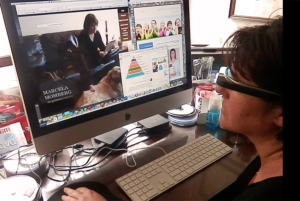
Miss Twitter, as her students call her, has been existing in the digital world for 12 years, showing them, for example, that it’s possible to “exist positively in a tangled world”, designing pedagogical strategies to enable them to learn how to use the networks and teaching and accompanying other teachers so that they can do so too. At the ProFuturo Observatory we believe in the importance of developing digital citizenship from childhood as a way of being and acting in a responsible way in the digital world. In this interview Marcela Momberg shares her recipe for applying technology in the classroom and explains how to support teachers, especially those from vulnerable backgrounds, and what the authorities should do to facilitate this application. Don’t miss the video of our talk that we made.




